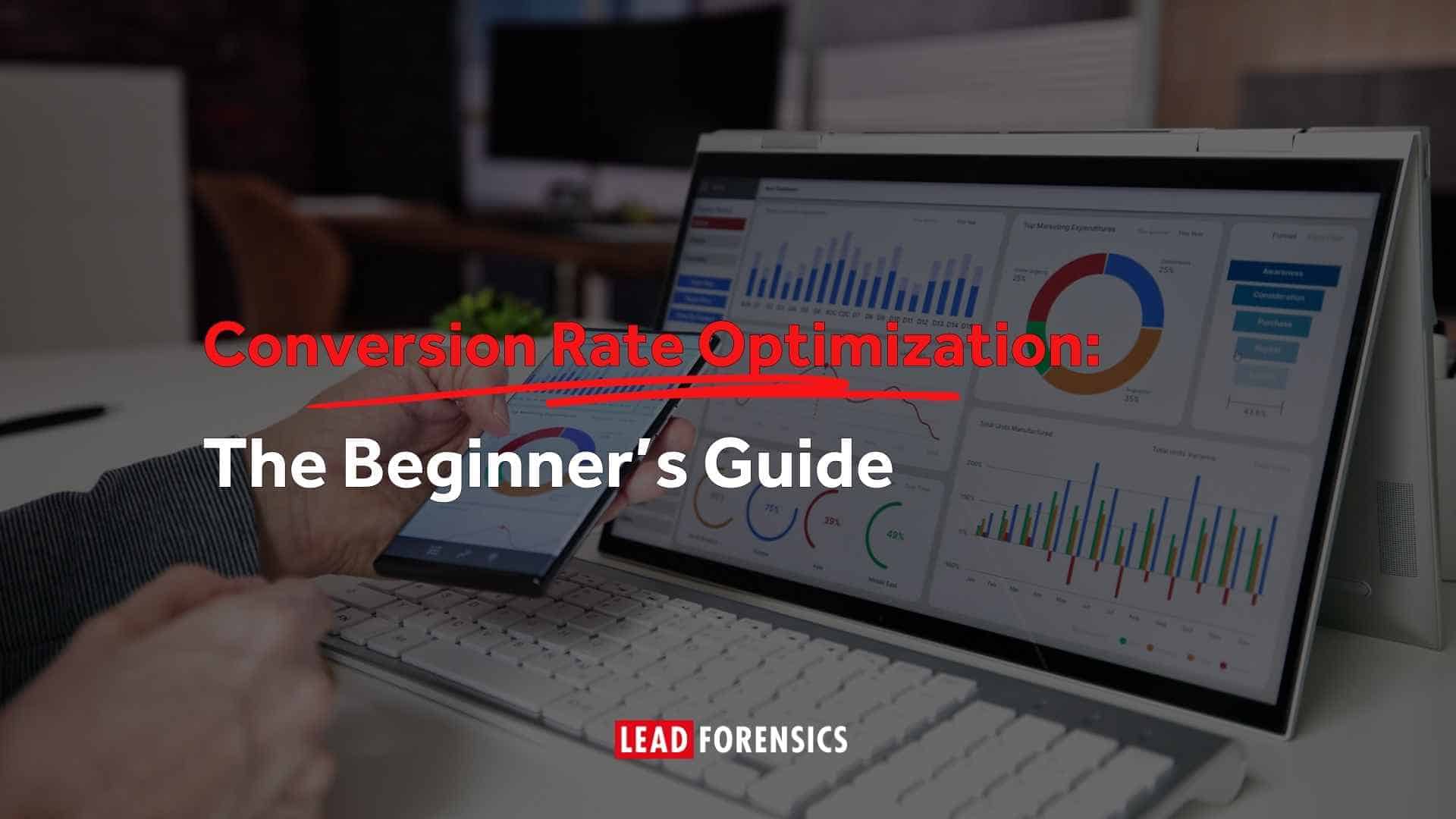If you’re eager to delve into the world of CRM systems, whether it’s for implementation guidance or strategies to tackle obstacles, you’ve arrived at the your destination. Explore the possibilities, unlock new opportunities, and take your sales game to the next level.
Our blog is dedicated to addressing all of your inquiries and providing valuable insights. Discover the most effective strategies for implementing a CRM system, uncover its benefits for your team, and learn how to seamlessly integrate it into your operations. Don’t miss out on this opportunity to expand your understanding and leverage CRM to its fullest potential.
Elevate your sales process to new heights with the power of a CRM system. Check out our insightful webinar, “From Pipeline to Profit,” featuring Christian Vetter from Sugar CRM.
Whether you already use a CRM system or are considering one, our blog is a valuable resource for enhancing your sales process. Gain insights, tips, and strategies to optimize your CRM system’s impact, improve customer engagement, and drive sales performance.
From overcoming challenges to leveraging advanced features, our blog equips you with the knowledge to streamline workflows, foster collaboration, and achieve measurable results. Whether you’re new to CRM or experienced, our user-friendly blog empowers you to unlock the full potential of CRM systems and elevate your sales efforts.
Uncover Hidden Treasures: How CRM Systems Unleash High-Value Opportunities
In the dynamic and competitive world of sales, identifying and targeting high-value opportunities is crucial for driving revenue and achieving success. Sales teams need a strategic approach that enables them to navigate through the vast sea of prospects and focus their efforts on the most promising leads.
This is where Customer Relationship Management (CRM) systems shine. CRM systems excel in enforcing discipline and streamlining the sales process, revealing hidden treasures of high-value opportunities for sales teams and ultimately driving increased profitability.
CRM systems act as a guiding force for the entire sales team, ensuring they adhere to a standardized process and playbook. By following predefined qualification criteria, such as evaluating a prospect’s seriousness and assessing the size of the opportunity, sales teams can identify higher-value prospects. This helps focus efforts on leads that are more likely to convert into successful deals.

CRM systems offer a powerful range of features that supercharge sales pipeline management and boost closing rates. But it doesn’t stop there. Mature organizations understand the importance of continuously improving their sales processes and key metrics. That’s where CRM systems with robust analytical capabilities come in.
By leveraging these systems, sales leaders and individuals can monitor performance metrics like win rates and conversion rates between sales stages. This valuable data provides insights into the effectiveness of the sales process, enabling leaders to identify areas for improvement and drive enhancements. The result? Increased close rates and revenue generation.
But it’s not just about individual performance. CRM systems also empower sales leaders to track team performance and pinpoint areas that need improvement. With a time-aware CRM, leaders can monitor key metrics on a monthly or quarterly basis, creating a feedback loop that fosters a culture of continuous improvement. By aligning team efforts with measurable goals, CRM systems promote accountability and motivate sales teams to achieve better results.
“Switching CRM systems is like navigating a valley of despair for sales teams. By carefully selecting and aligning the CRM with your team’s identity and processes from the start, you can minimize the challenges and accelerate productivity.”- Christian Vetter from Sugar CRM in our Webinar From Pipeline to Profit
When choosing a CRM system, customization and fit are key. It’s not just about getting any system—it’s about finding one that seamlessly aligns with the sales culture of your organization. A customized CRM becomes a powerful tool that adapts to your unique processes and identity, ensuring you retain your competitive advantages and minimize disruption during implementation.
So, don’t settle for a one-size-fits-all approach. Embrace a CRM system that unleashes your sales team’s full potential and drives remarkable results.
Supercharge Your Sales: Unveiling the Power of CRM Systems to Boost Team Performance and Fuel Growth
As a leading provider of lead generation solutions, Lead Forensics understands that achieving sales success requires more than just hard work and determination. It demands a strategic approach, streamlined processes, and effective teamwork. That’s where Customer Relationship Management (CRM) systems come into play, offering a powerful toolset to supercharge your sales efforts and drive exponential growth.
Imagine having a unified platform that seamlessly connects your marketing, sales, and service departments. With a CRM system in place, everyone in your organization can contribute to the customer experience, ensuring a consistent and delightful journey from start to finish.

But it doesn’t stop there. By leveraging the power of a CRM system, you can harness valuable insights and key performance indicators (KPIs) to propel your team’s performance to new heights. Say goodbye to scattered data and inconsistent metrics. With a centralized system, you can track your progress, identify areas for improvement, and make data-driven decisions that lead to tangible results.
Automation is another game-changer. CRM systems empower you to automate repetitive tasks, streamline workflows, and eliminate time-consuming manual processes. This not only frees up your team’s valuable time but also ensures that nothing falls through the cracks. Imagine the efficiency gains and the increased focus on high-value activities that come with automation.
But perhaps one of the biggest advantages of a CRM system lies in its ability to bridge the gaps between departments. Smooth handovers from marketing to sales, and from service to sales, become a reality. No more lost leads or miscommunication. With a well-implemented CRM system, you can ensure that everyone is on the same page, working together seamlessly towards a common goal.
“A CRM system, like Sugar, automates processes and facilitates seamless handovers between departments, ensuring tasks are tracked, SLAs are met, and operations run smoothly.” – Christian Vetter from Sugar CRM in our Webinar From Pipeline to Profit
Of course, selecting the right CRM system is crucial to unlocking these benefits. It requires careful consideration of your specific needs, objectives, and the unique dynamics of your sales team. But fear not, we’ll guide you through the process and help you make an informed decision that sets your team up for success.
CRM Nightmare: The Costly Mistakes That Can Haunt Sales Teams When Choosing the Wrong System
When it comes to selecting a CRM system, making the right choice is crucial for the success of your sales team. A poorly chosen CRM system can turn into a nightmare, costing you valuable time and resources. So, how can you avoid these costly mistakes and unlock the full potential of your sales efforts?
One key aspect to consider is the seamless integration of marketing, sales, and service. By utilizing a CRM system that connects all these departments, you enable your entire organization to contribute to customer satisfaction and sales growth. This unified approach allows for consistent tracking of KPIs across teams, ensuring a common understanding and effective management of these metrics.
CRM systems offer valuable features like workflow automation and business process management. By implementing a CRM system across your marketing, sales, and service functions, you can streamline processes and bridge departmental gaps. This allows for seamless transfer of leads and information between teams, ensuring smooth handovers and adherence to service-level agreements and timeframes.

However, selecting the wrong CRM system can lead to significant flaws in your sales process. One common mistake is underestimating the challenges and potential roadblocks that may arise during implementation. It is essential to plan for user adoption from the beginning, going beyond mere training and focusing on user engagement. Engaging stakeholders, establishing governance, and providing ongoing support and feedback mechanisms are vital for driving user adoption and ensuring a successful implementation.
For small teams, specific metrics hold particular importance. Tracking customer engagement and prospect interactions becomes crucial. By aligning marketing and sales efforts, you can effectively measure engagement, validate the effectiveness of your communication strategies, and ensure that prospects and customers are actively interacting with your content.
“Tracking customer and prospect engagement is vital, even in small teams. Sales and marketing must align to measure engagement, ensuring customers are actively involved. Tools like lead forensics validate content consumption and website visits, driving success for our sales team.”- Christian Vetter from Sugar CRM in our Webinar From Pipeline to Profit
Avoid the CRM nightmare and empower your sales team for success. Make a well-informed CRM system choice, plan for user adoption, and harness the true power of CRM to unlock untapped potential and fuel your growth.
Proven Strategies for Seamless Adoption of a New CRM System by Sales Teams
Implementing a CRM system can be a game-changer for sales teams. It offers powerful tools to streamline processes, manage customer interactions, and drive revenue growth. However, introducing a new CRM system requires careful planning and effective strategies. Here are the key approaches to ensure a seamless adoption by the sales team:
Clear Communication: Keep the team informed about the implementation process, milestones, and changes through regular newsletters or updates. This builds trust and alignment.
Ownership and Engagement: Involve the sales team from the beginning, seek their feedback, and make them feel valued. Their input is crucial for success, and a sense of ownership fosters active participation.
Transparency: Provide clear explanations and involve the team in decision-making processes. Transparency builds trust, accountability, and a culture of continuous improvement.
Post-Implementation Communication: Establish clear channels for feedback and support. Respond promptly, record and prioritize suggestions, and communicate decisions to create a culture of responsiveness.
Enhancing Prospect Engagement: Develop a mutual sales plan with prospects, outlining processes, milestones, and expectations. This fosters transparency and an honest relationship from the start.
“CRM systems enable enhanced prospect engagement and the building of stronger customer relationships through the implementation of a mutual sales plan. By collaboratively establishing processes, milestones, and transparent communication, both buyers and sellers can work together to ensure thorough due diligence and accountability.” – Christian Vetter from Sugar CRM in our Webinar From Pipeline to Profit
Incorporating Competition and Maintaining Competitive Advantage: The Golden Rule of Choosing CRM Systems to Drive Success
In sales, a little competition can be beneficial. It starts with clearly defined metrics and goals, aligning them with KPIs and new metrics, and sharing them across the CRM system through dashboards, reports, and meetings. This transparent approach creates a unified vision of what the team and individuals are striving for – reaching targets, meeting budgets, and achieving success.
Continuous comparison of actual results with set goals, along with transparent publishing, becomes the driving force. Salespeople, by nature, are competitive, and referring to dashboards to assess team standings fuels their motivation. No one wants to be at the bottom of the list, regardless of the department. Everyone takes pride in their role and functions, and a healthy level of competition helps propel the process forward.

Gamifying the sales process encourages individuals to perform at their best, leveraging CRM systems to optimize performance. While maintaining balance and avoiding excessive pressure, a little competition fosters growth and achievement.
CRM systems like HubSpot provide insights into known website visitors, but with Lead Forensics, you can expand your pipeline by capturing unidentified visitors through form fills and more.
“Choose a CRM system that amplifies your competitive advantage. Don’t conform to the system; let it enhance your path to success.” – Christian Vetter from Sugar CRM in our Webinar From Pipeline to Profit
Lastly, when considering CRM systems, remember the golden rule: the system should align with your competitive advantage and strengthen your existing practices. Don’t compromise on what has made you successful so far; instead, leverage a CRM system that complements and enhances your unique approach.
Unlock the full potential of your sales process with the power of a CRM system and take your demo game to the next level. But don’t stop there – for an unparalleled boost in performance, consider leveraging the capabilities of Lead Forensics. As a cutting-edge lead generation and analytics platform, it equips you with invaluable insights to create personalized and impactful demos that truly resonate with your audience.
Ready to embark on a transformative journey? If you’re intrigued by the possibilities of supercharging your sales process with Lead Forensics, we warmly invite you to request a demo with our team of experienced professionals. We’ll not only guide you through the intricacies but also showcase how our platform empowers your business to soar to new heights.










